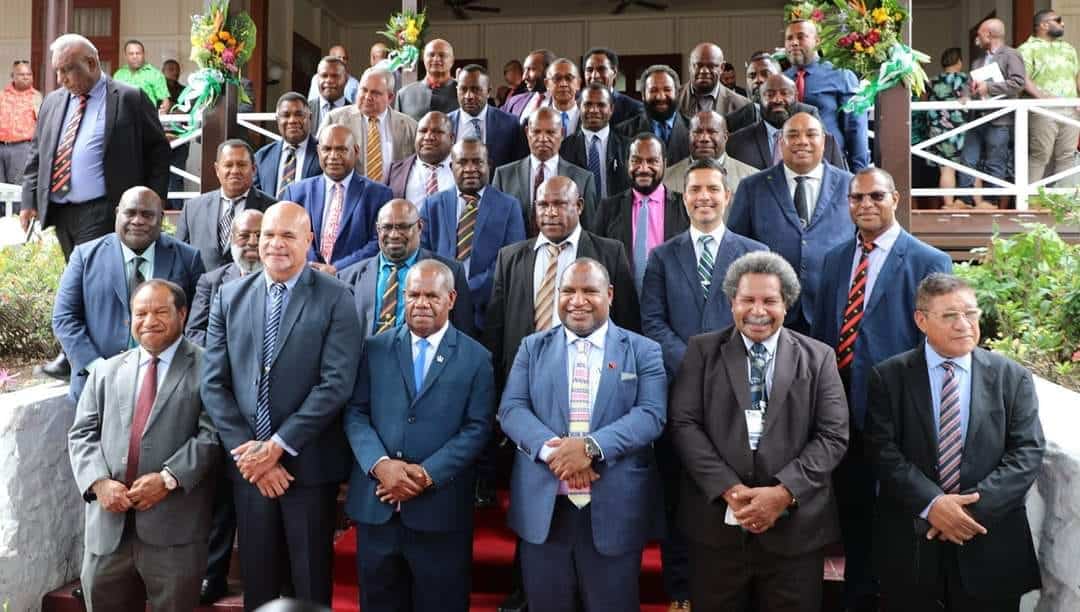Papua New Guinea’s Prime Minister has promised a cabinet reshuffle as businesses reckon with the cost of looting and rioting last week that inflicted heavy damage on the impoverished Pacific Island country’s economy.
A two-week state of emergency is now in force in the capital Port Moresby following the 10 Jan unrest in the city and industrial centre Lae that was sparked after a purported payroll system glitch cut the salaries of government employees. Port Moresby General Hospital alone recorded nine deaths, according to its Chief Executive, Paki Molumi.
Prime Minister James Marape on Sunday said a cabinet reshuffle was imminent in a statement that acknowledged the scale of the “issues concerning the economy and the functionality of key state agencies.”
Port Moresby’s Governor, Powes Parkop, told BenarNews that it is estimated that two major local retailing groups–Brian Bell and Stop & Shop chain of supermarkets–have suffered losses of at least K600 million ($160 million) from looting and arson. He said the costs of the unrest will grow as other businesses are still to submit reports.
Papua New Guinea is the most populous Pacific Island country and endowed with significant mineral and other resources, but has struggled to develop economically because of corruption, poor infrastructure, frequent tribal violence, and a deep level of inequality for women.
It has one police officer for about every 1,800 people, nearly four times less than the level recommended by the United Nations to ensure law and order, according to a Griffith Asia Institute report released last year. The ratio of police to people has declined substantially in the past half century as Papua New Guinea’s population tripled.
Gordon Peake, a Senior Adviser to the Congressionally funded United States Institute of Peace think tank that specialises in conflict resolution, said the mayhem was a wake-up call for the U.S and other nations to focus on the root causes of Papua New Guinea’s instability.
The U.S. signed a wide-ranging defense cooperation agreement with Papua New Guinea last year as part of its response to China’s inroads with Pacific Island nations and broader military buildup.
Peake, in a commentary on the unrest, said it showed the hollowness of government institutions that are failing to meet public needs, thereby risking deeper violence and instability.
“Papua New Guinea is effectively two worlds. International partners and donors engage a reed-thin pretense of officialdom,” he said.
“This world is not easy to engage with but makes itself at least somewhat legible to outsiders.
But the bulk of PNG’s estimated 10 million people live in a separate, vast, uncertain world of unemployment and at best meager income.”
Wilson Thompson, Chairman of Papua New Guinea’s National Research Institute, said aside from losses from looting and burned down premises, thousands of people are likely to lose jobs while government revenue also will be reduced.
“It is also of concern to local businesses all over PNG that in the stroke of a moment, anything can happen, and any investment can go down,” he told BenarNews.
“Also, foreign investors will be conscious of the fact that long established businesses with good community engagement and goodwill such as Brian Bell and Stop and Shop were not spared,” Thompson said. Marape, as part of his initial response to the unrest, suspended four senior civil servants including the head of police. In a press conference last week, he alleged there was an organised element to the violence and said an investigation would be carried out.
